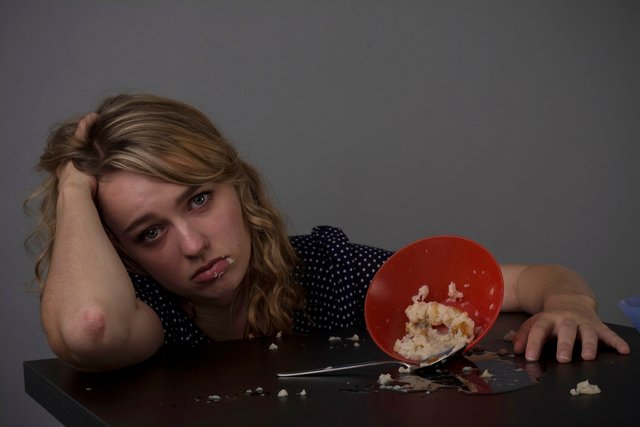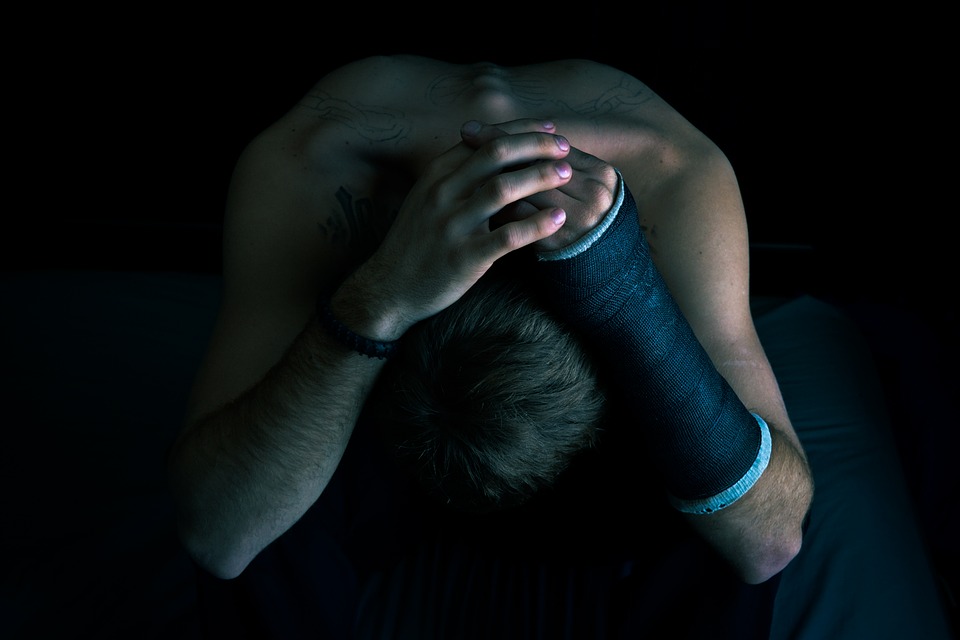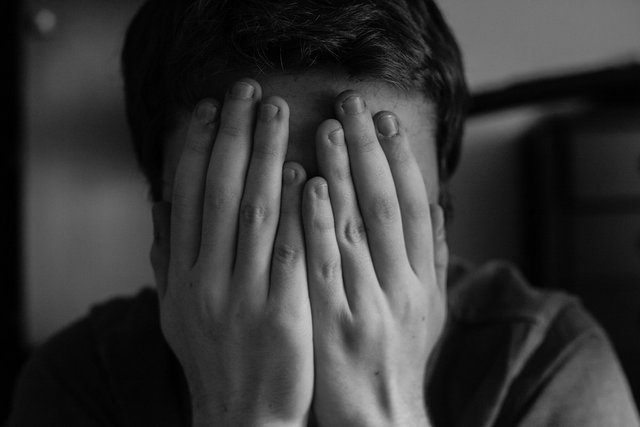WHY do some people OVEREAT? [part2]
Is depression linked to Binge Eating Disorder?

Methods
Also Wonderlich et al (2009) found in their study that people with binge eating disorder have a low quality of life. Matos et al (2002) conducted a study of anxiety, depression and body image. They used to measure depression the Beck Depression Inventory (BDI). This is a structured instrument that consists out of 21 groups, which describe several depressive symptoms. The BDI assesses the intensity of depressive symptoms. The scores range from 0-63. With a score between 0 and 9, there is no question of depression. With a score of 10-15 there is mild depression, with a score of 16-19, there is mild to moderate depression, with a score of 20-29, there is a mild or severe depression and scores above 30, there is a severe depression. Also Linde et al (2004) used the BDI to measure depression in people with binge eating disorder, in their search for weight control and depression in people who are overweight. On examining Matos used 50 patients among which 10 men and 40 women aged 19-56 years.

Results
Matos et al (2002) found in their study a remarkably high frequency of symptoms suggestive of major depression (84%). This is much higher than the overall frequency of depressive symptoms, namely 28.7% in a group of people with morbid obesity in people who had undergone surgical treatment. Also Linde et al (2004) found in their study that the prevalence of depression and binge eating disorder were high. In women, depression was more related to the idea of wanting a lower weight. Wonderlich et al (2009) found in their study of binge eating disorder that people with binge eating disorder have a low quality of life compared to obese individuals without binge eating disorder. Matos et al (2002) found in a high frequency of severe depressive symptoms in people with binge eating disorder (36%) and people with binge eating (54%). Werrij et al (2006) investigated people with obesity, depression and several disorders, this study involved 66 people with symptoms in obese and 83 people without symptoms. Obese people with symptoms had more problems in terms of body shape, weight and eating (p <0.001), they had a lower self-esteem (p <0.001). Depression occurs in people who binge eat more than obese people without symptoms.

The study by Dingemans et al. (2002) included 66 women with BED an exciting movie shown here were asked if they wanted to suppress their emotions. After the movie the women had to participate in a taste task. The results of this part of the study were that the depressive symptomatology was positively correlated with the calorie intake. After completing the BDI there was an average score of 19, which indicates moderate to severe depressive symptoms (Dingemans et al, 2002).
In PART 3 we will discuss the conclusion. Is it related?
These are links to my other articles, you might like them:
Why do some people overeat? [part1]
Stress: the source of all problems?
Stress: how to recognize it
Checking social media every day? You probably suffer of socialbesitas
Follow me: @pinkielady
Sources
Dingemans, A.E., Bruna, M.J. & Van Furth, E.F. (2002). Binge eating disorder: a review. International Journal of Obesity, 26, 299-307.
Linde, J.A., Jeffery, R.W., Levy, R.L., Sherwood, N.E., Utter, J., Pronk, N.P. & Boyle, R.G. (2004). Binge eating disorder, weight control self-efficacy, and depression in overweight men and women. International Journal of Obesity, 28, 418–425. DOI: 10.1038.
Matos, M.I.R., Aranha, L.S., Faria, A.N., Ferreira, S.R.G., Bacaltchuck, J. & Zanella, M.T. (2002). Binge eating disorder, anxiety, depression and body image in grade III obesity patients. Revised bras Psiquiatri, 24, 4. DOI: 10.1590.
Werrij M.Q., Mulkens S., Hospers H.J. & Jansen A. (2006). Overweight and obesity: The significance of a depressed mood. Patient Education and Counceling, 62, 126-31
Wonderlich, S.A., Gordon, K.H., Mitchell, J.E., Crosby, R.D. & Engel, S.G. (2009). The validity and clinical utility of binge eating disorder. International Journal of Eating Disorders, 42, 687-705.
This post has been ranked within the top 25 most undervalued posts in the second half of May 01. We estimate that this post is undervalued by $7.19 as compared to a scenario in which every voter had an equal say.
See the full rankings and details in The Daily Tribune: May 01 - Part II. You can also read about some of our methodology, data analysis and technical details in our initial post.
If you are the author and would prefer not to receive these comments, simply reply "Stop" to this comment.